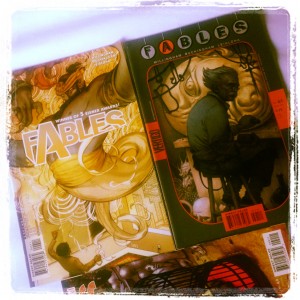Having been a musician for much of my life, it has been interesting for me over the last few years of serious book writing to compare the creative process and working styles of the two fields.
The first obvious difference is that writing is very much an individual process, whilst creating music has, for me, been mostly collaborative, also known as shouting at each other until you get your own way.
Working together with many bands over the years, I have had to learn to consciously open myself up without ego when other band members change or make comment about my ideas. It didn’t start out as an easy thing to do, but I think that the ability to do it has grown from having a little more experience and self-confidence. Admittedly that’s not always the case.
I’m sure I’m not the only person who finds it difficult to have their ideas messed around with, but I did find being part of a band often made that easier. I love the act of collaboration that occurs within a like-minded group of musicians and I’ve been fortunate enough to work with a number of them.
When I began my adventures in writing, the control freak part of me (quite a large part actually) went ‘woohoo! No longer do I have to exist without ego, or answer to someone else for my half-baked crazy ideas, I’m free, free!’ Ahh, how wrong I was. Once we began to explore the reality of publishing I discovered that ‘wonderful’ word, editor.
All of a sudden I was thrown, with scarcely a life jacket, back into the choppy seas of collaboration. My strange ramblings were abruptly scrutinized, my careless sentence structure ripped callously apart. I jest of course, I love my editor, she’s my wife, so I guess I probably should really.
What I have found, is that almost every comment made by her in someway enriches the story I am trying to tell. I don’t always agree with them, and I do like being the boss. Being able to say, ‘hmmm, I like what you’ve done here, nope, that sucks’ is something of a relief, but any ideas I may have had about the wonders of isolation have been blown out of the water as I watch my words become immeasurably better under her careful guidance. So, yay for proof readers, editors and the collaborative process. Unless I’m tired. Or grumpy, or they’re wrong.
My experience with music is that almost inevitably working with others on a song will improve it. Sometimes, and particularly if it’s your song, it can take a while for you to really appreciate the improvements. I used the phrase ‘open myself up without ego’ What I mean by that is that in order to really work effectively on an original creation I found that I had to let go of it as being mine. This was just a touch tricky. I tend to invest myself fully in whatever I am creating, so to then hand it over and allow others to change it is a bit like letting someone else raise my child.
However, over the years it became slowly and painfully clear to me that giving others the chance to improve my work was not only humbling (in a good way), but also a fantastic learning curve. Everyone has a different way of seeing and hearing things and having your work viewed through those different perspectives can have a huge impact on how you then approach new creations. Suddenly you have new tools and ways of thinking about doing something that you may, inadvertently, have already become predictable in.
This realisation has made it much easier for me to hand over my new book to my editor without the usual agony. She isn’t telling me how to raise my child, simply suggesting ways I might do it better. Most importantly, her suggested improvements aren’t a criticism of what I’ve done, but just a different perspective, a different way of seeing the same thing.
Hold on, she is telling me how to raise her. Dammit. Well, you get the idea. What I have come to realise is that in working with others, I don’t have to completely let go of what is mine, just be willing to share it.

